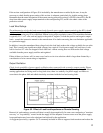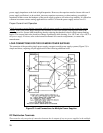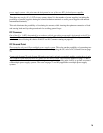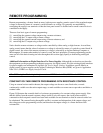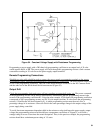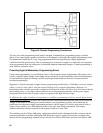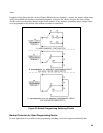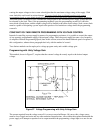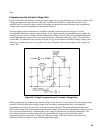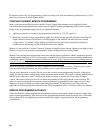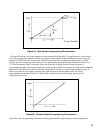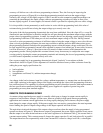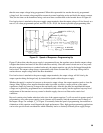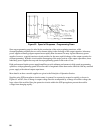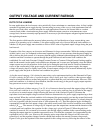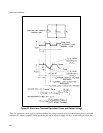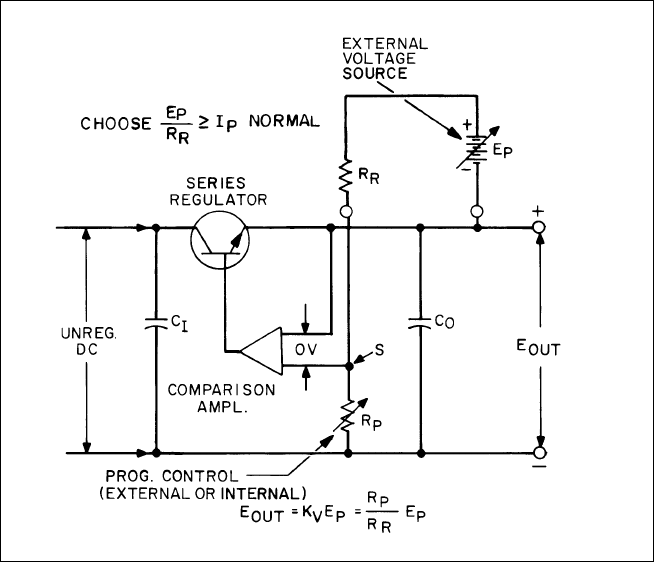
85
basis.
Programming with Variable Voltage Gain
Figure 58 illustrates the method by which the power supply can be programmed using an external voltage with a
voltage gain dependent upon the ratio of R
P
to R
R
. Note that this method is no different from the circuit
normally used for constant voltage control of the output except that an external reference (the programming
voltage source) has been substituted for the internal reference.
On most supplies external terminals are available so that the connections shown in Figure 58 can be
accomplished without any internal wiring changes. In all Agilent remotely programmable power supplies the
summing point S is made available, and the configuration of Figure 58 can always be accomplished using the
external programming voltage source and external precision wirewound resistors R
P
and R
R
. (R
R
should not
exceed 10K). As indicated by the equation in Figure 58, R
P
can be selected so that the resulting voltage gain is
either less or greater than unity. It is possible to use the front panel control on the supply as the voltage gain
control, RP.
Figure 58. Voltage Programming with Variable Voltage Gain
When programming the output using a remote voltage source, the use of a zener diode across the programming
terminals will prevent the power supply output from exceeding a predetermined limit, even though the
programming source may provide an excessively high input command. The relationship between the zener
diode and the output limit value depends upon the power supply design and the programming connection, but in
any case can be determined by considering the power supply as equivalent to an operational amplifier. The
zener diode must have a current rating equal to or greater than the largest current which the remote
programming source can provide--in some cases the power rating of the zener diode can be reduced by
employing a fixed resistance in series with the programming path.



